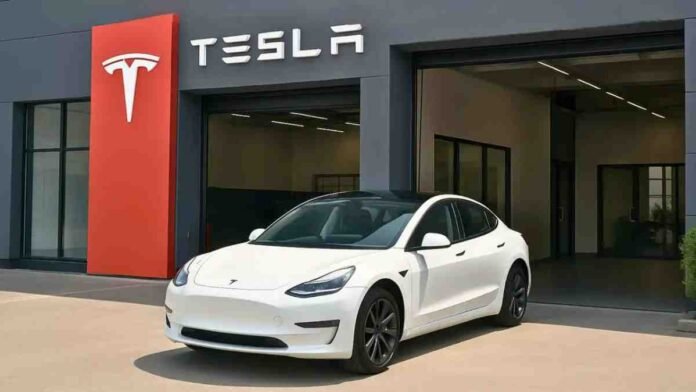According to Reuters, Elon Musk’s Tesla will make its physical debut in India on July 15, when it opens its first showroom in Mumbai’s Bandra Kurla Complex.
Following years of talks and anticipation, the launch represents the electric vehicle (EV) giant’s official debut in the Indian market.
The Mumbai location, dubbed a “experience centre,” will be Tesla’s first official store in the country. According to Reuters, the corporation indicated its intention to start local sales activities in March of this year by signing a lease agreement for the showroom. In addition, Tesla has increased its workforce and started looking for potential showroom locations in New Delhi and Mumbai.
Five Model Y cars have reportedly been sent from Tesla’s Shanghai facility to Mumbai, according to Bloomberg. Due to India’s 70% tariff on fully completed imported cars, the vehicles were declared at ₹2.77 million (about $31,988) each, with additional import duties surpassing ₹2.1 million per unit.
Following extensive lobbying by the corporation for lower import duties, which had previously delayed its launch, Tesla finally made its debut. Nevertheless, the EV manufacturer is not aiming to start manufacturing in India anytime soon, even with this milestone.
“Tesla is supposed to open showrooms; we are not expecting anything from them. Last month, Union Minister for Heavy Industries HD Kumaraswamy told ANI that they have no interest in manufacturing in India.
Tesla is making a cautious start in one of the biggest emerging EV markets in the world by concentrating its ambitions for India on building retail infrastructure rather than local production.
The government said Tesla will not receive preferential treatment
Following protracted discussions over tariff concessions, Tesla has finally entered India. Elon Musk, the CEO of Tesla, stated in April of last year that his trip to India had been postponed because of his “heavy obligations.”
The business had requested significant duty exemptions, up to 70% for vehicles under $40,000 and 100% for more expensive models. But early this year, Piyush Goyal, the minister of commerce and industry, stated unequivocally that India will not change its laws to benefit one particular automaker.
According to news, Goyal stated, “The government aims to attract all global EV manufacturers, not just Tesla.” He also said that regulatory frameworks will be created to promote a strong electric vehicle ecosystem that lowers carbon emissions and imports less oil.
Tesla’s entry into India coincides with a drop in sales in critical areas like China and Europe.



